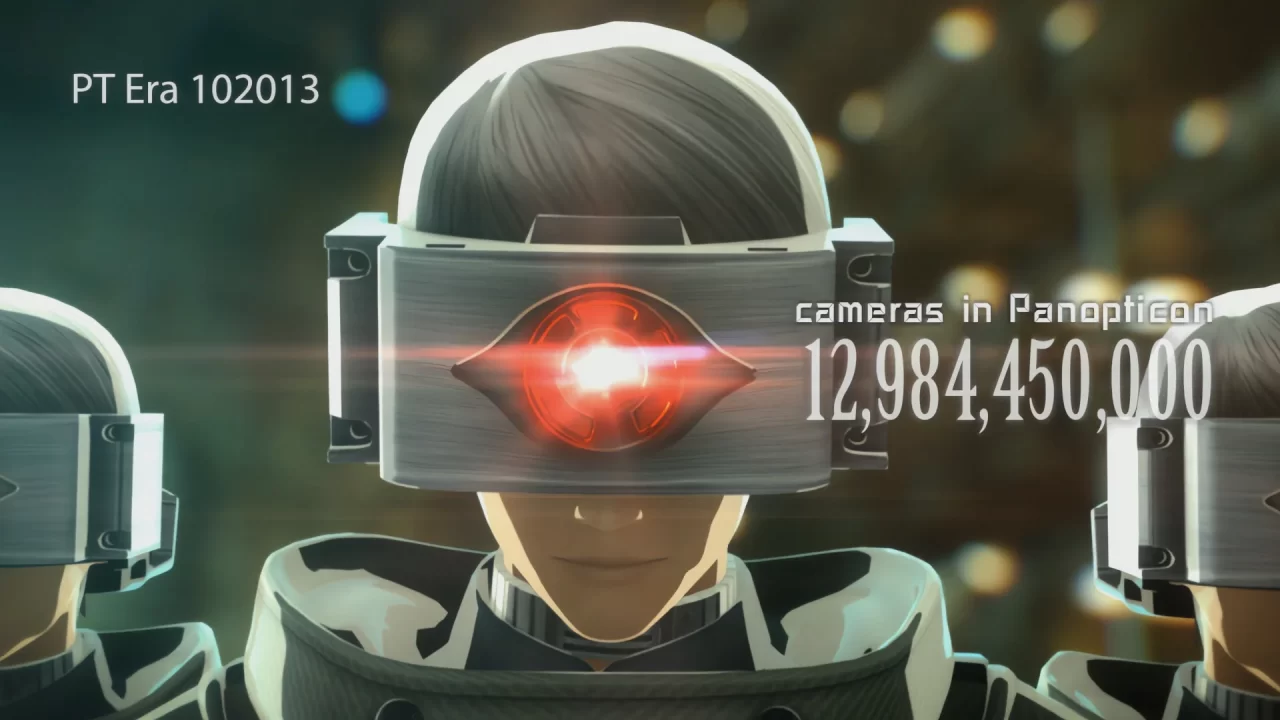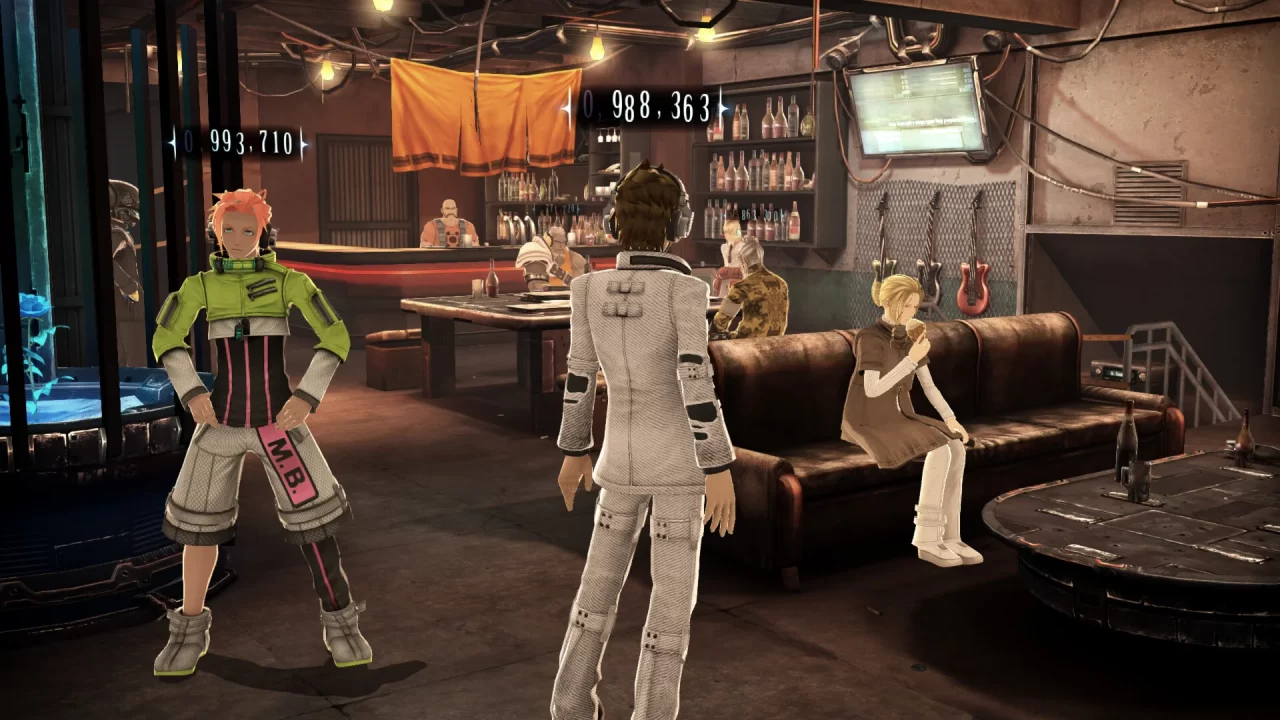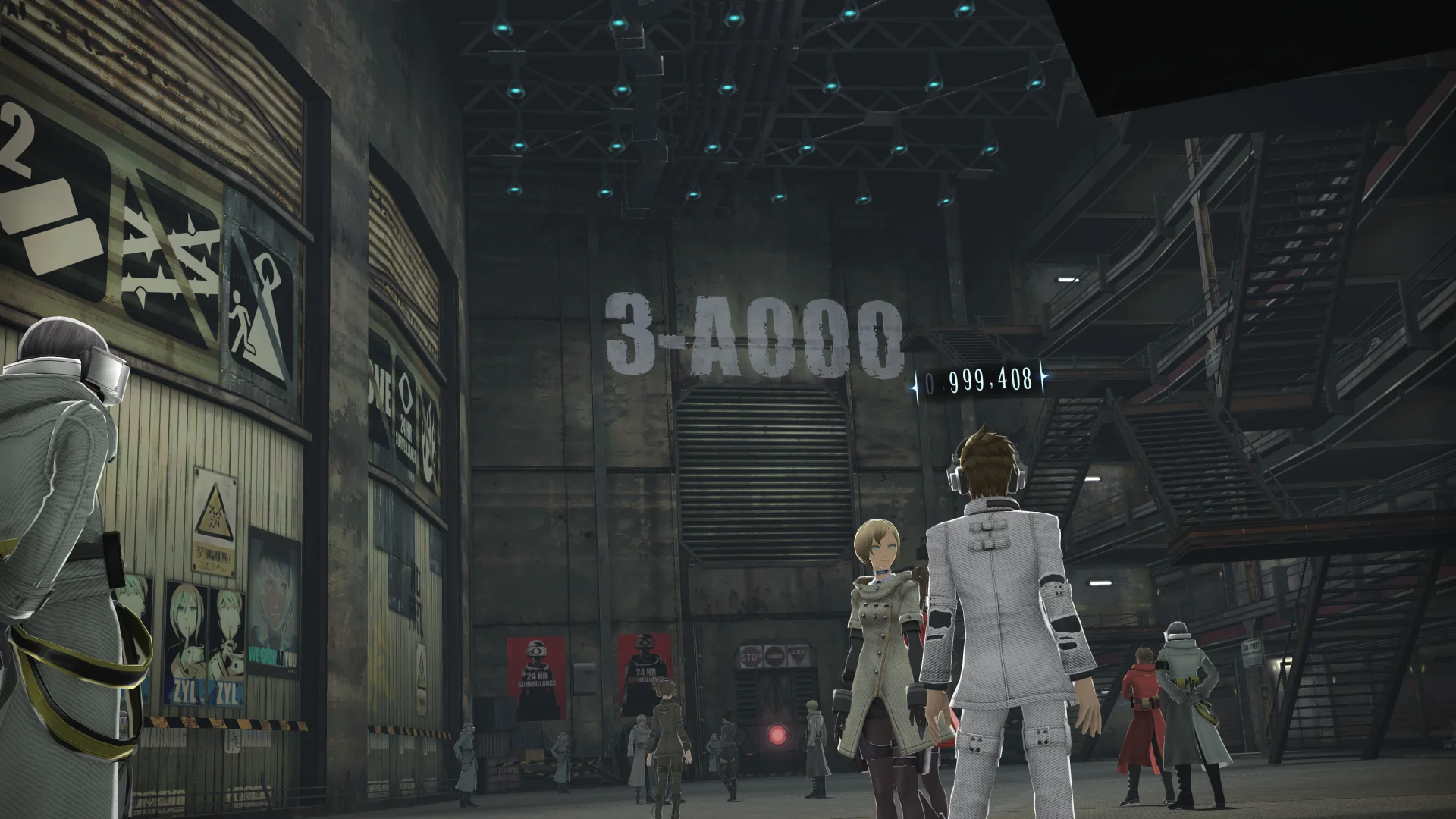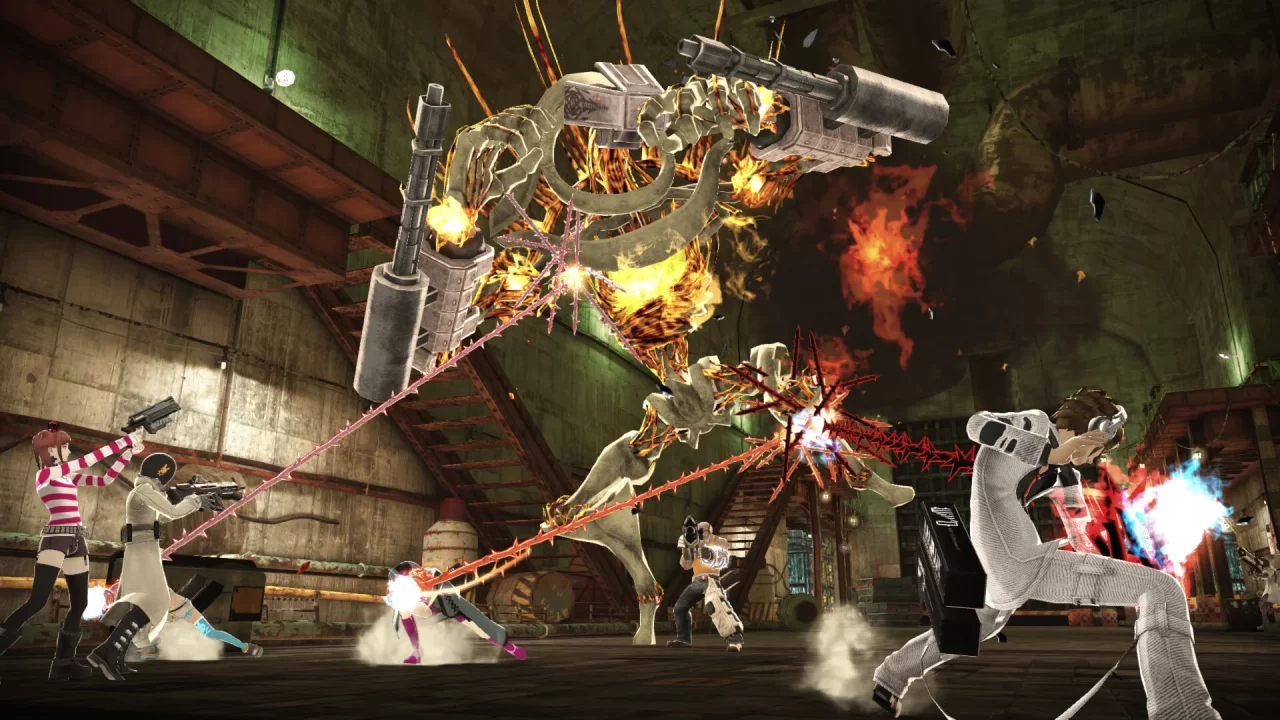I’d considered playing Freedom Wars years ago, back when it was locked to the PlayStation Vita. I didn’t have much reason to besides the fact that it was one of the few Vita-exclusive games with an anime aesthetic that I’d never heard of before. That it’s received a re-release after years trapped on that ill-fated handheld is certainly good news to those who enjoyed it. But for those who missed out on it the first time, I regret to say that your time is better spent elsewhere.
Freedom Wars Remastered is one of those games where there’s so little on offer that it’s difficult to even formulate a review. Its gameplay is merely passable, its story is incomplete at best, and despite its title, it has frighteningly little to say about freedom, authoritarianism, or the carceral system. That last one is particularly aggravating, given just how much the early game does not stop reminding you how its setting is unjust. It isn’t bad, but you’d probably be better off playing Monster Hunter or God Eater.
Any attempt to explain Freedom Wars’ plot is likely to make it sound far more interesting than it actually is. It’s the post-apocalypse, resources are scarce, and what’s left of humanity has huddled into authoritarian fortresses called Panopticons. The societies that have emerged in the Panopticons are so oppressive that many of their occupants have been deemed “Sinners”: criminals with absurdly long prison sentences who must work them off by fighting rival Panopticons. Even being born is a crime due to every life constituting a drain on ever-dwindling resources.
The player takes the role of an amnesiac Sinner whose loss of memory earns them a million-year sentence and a demotion. This demotion comes with a heavy restriction in rights. At first, the player character isn’t even allowed to sleep lying down or take more than five steps within their cell. The only way to improve one’s status is to jump back into the fray fighting other Panopticons. Sometimes, this means fighting other Sinners, but the prime targets are Abductors, monstrous machines made to capture civilians.
Post-apocalyptic societies colliding over resources is far from an original idea, but execution ultimately matters more than mere premise. Unfortunately, Freedom Wars comes up short on that front. The cast doesn’t have an ounce of nuance between them all, much less as individuals. Many characters are completely irrelevant to the story, and they’re not given much room to shine outside of an occasional bit of humor. The game’s ending features a twist so bafflingly constructed that it ruins one of the few characters who even has hints of depth. Plot points get introduced and dropped in rapid succession, with the ending only resolving the least interesting story thread in the whole game.
Most irritating is the game’s failure to meaningfully comment on the society of the Panopticons. A player may be penalized for anything from standing still, running too much, or not responding to dialogue prompts, but it carries very little weight. The only punishment ever dolled out is additional years on your sentence, but they increase in such small numbers that they won’t even make a dent in your quest to grind it down. Few of the characters even see these repeated forays into combat as little more than an inconvenience. These laws should be nightmarish violations of civil liberties and due process, but they’re slaps on the wrist in practice. And while I didn’t have the time to work off my character’s entire sentence, I have been informed that the result is shockingly anti-climactic.
The art design and graphics holding Freedom Wars Remastered up are a mixed bag. The character models are fine but lack expressiveness, which dulls the impact of major story beats. The environments are also quite limited, consisting of the Panopticon’s cells, slums, and hallways, and the outside world’s ruined cityscapes and wastelands. The most visually striking parts of the game are the menus and interface, and even then, they’re not that impressive. Audio-wise, the game has a decent but forgettable soundtrack and voice acting that serves to neither hurt nor elevate the script. That said, the spotty pronunciation of text-to-speech dialogue spoken by the mechanical “Accessory” assistants usually got a chuckle out of me.
There are many ways for an action game to hook me, but the simple truth is that good fundamental gameplay takes precedence. If the mechanics are sufficiently nuanced, mastering them can become its own reward. Regrettably, Freedom Wars‘ combat has little to offer here. There are six weapon types, divided evenly between melee and guns, and none of them control particularly well. Melee attacks can easily result in flailing in an unintended direction, and lining up shots feels too loose, even when aiming down sights. There is a decently fun grapple system tied to the supernatural thorns the Sinners wield, but it feels about as limited as the weapons in practice, even with three different types of charge techniques. Options are too limited among these weapons to be satisfying, and the game is easy to the point that I rarely ever altered my loadout or even needed to grind. And all this is without mentioning the disorientating lock-on camera.
A game with sufficient variety elsewhere could potentially sidestep several of these issues. Even without excellent close combat or third-person shooting, it could still be great if it had a diverse range of enemies and environments to mix up player interactions with opponents. Entire series like Monster Hunter thrive on the varied behemoths the player works to take down. It’s unfortunate that Freedom Wars has little in the way of enemy or environmental variety. While the main campaign isn’t terribly long, it’s filled with recycled enemy types, small and large. Any variety is usually minor, and it cannot hope to halt the feeling of repetition.
Hitting or shooting the massive Abductors rarely results in substantial damage or visible feedback, so the game incentivizes dodging around until they’re temporarily incapable of attacking when toppled or stunned. As such, fights are a loop of shooting specific body parts to sever them, downing the Abductor with your grapple, laying into them with some melee attacks, then repeating the process. This is less viable when there are two Abductors to fight at once, adding to the gameplay shortcomings.
Abductors have huge health pools, and does not take long to see all their attacks. Furthermore, the ability to damage their limbs and weapons means their move pool shrinks as the fight progresses. This is true even if you’re operating with a full AI-controlled team. While they’re not the smartest bunch, these computer-controlled Sinners end up doing a lot of heavy lifting for you, even if that inevitably means that they make most Abductor fights rather easy. At least there’s some challenge there; any encounters with other Sinners or smaller Abductors usually end with your companions slaughtering most of them before you can get your hits in. Companions have nearly as many attacks in their arsenal as the player does, which is to say very few. Even when missions require civilian rescues, your party ends up so large that you can instruct an AI character to rescue them for you.
The game loop in Freedom Wars Remastered remains unsatisfying even outside of combat. Upgrading weapons is tedious, thanks to the sheer quantity and confusing sci-fi names for necessary materials. Upgrading abilities uses that same set of resources and only buffs parameters and stats. Most egregiously, the story has mandatory stealth sections so mechanically and environmentally simple as to be sleep-inducing. There aren’t even that many areas in the Panopticon to explore, and the areas that do unlock are visually identical to what came before. None of this is to say the game is never fun. There is the occasional mission where the large Abductors are placed in an environment that compliments their moveset (usually ones that emphasize verticality), and there are double-abductor fights that feel tense and frantic. But these are few in number. What we’re left with isn’t bad so much as it’s unremarkable.
I truly wish Freedom Wars could live up to my expectations. Stories about authoritarian forces with absurd standards of criminality are more necessary than ever. I think we could also use more action games emphasizing vertical environments and mobility. But as it stands, I don’t think I’ll be returning to the Panopticon or working off my sentence any time soon. The prospect sounds more like a prison sentence than a fun time.






